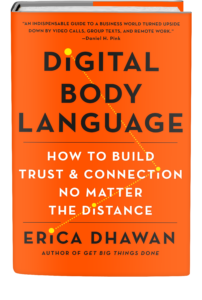The ability to build trust is a vital skill in our day in age. Institutions are viewed with skepticism and mistrust by the majority of people, and that is not only talking about banks and educational establishments. Facebook, Google, and many other large corporations are viewed with the same kind of pessimism. My guest today is Rachel Botsman, an accomplished author who has studied the issue of trust in depth and has some incredibly valuable advice for those who are seeking to build trust in an age of distrust. Listen to this episode to hear what she has to share. You will find that trust is at the bottom of every good or successful relationship.
[Tweet “.@RachelBotsman: Building #Trust In An Age of #Distrust, Episode #23 of #Masters of Leadership with @EDhawan. #GetBigThingsDone”]Is technology helping us to place our trust in worthy places and people?
A casual look at the way people sign up for social media platforms and software packages these days might convince you that people are very trusting. For example, when is the last time you read every word of the terms of service on one of those websites? Probably never. But does that mean that you inherently trust those who own and operate the website? Rachel Botsman says that much more is going on than simple trust and distrust. There is a myriad of complicated emotion and thought that governs the way we give and receive trust. On this episode, she unpacks some of the detail behind those things to help us understand how those of us who are leading companies and organizations can build trust instead of destroying it.
Building trust is a skill every leader must have
Leadership is built on trust. It’s hard to be at the forefront of any movement or cause and expect people to follow you without it. Rachel Botsman says that leaders especially need to learn how to foster trust within their organizations or companies. A company culture that is powerful is a company culture where individuals have learned how to trust each other. Listen to this conversation as Rachel explains practical steps leaders can take to improve their ability to build trust with those they lead and those they serve alongside. These are powerful principles every leader must know.
[Tweet “Building #trust is a skill every #leader must have. Find out how you can do it on this episode of #Masters of Leadership with @RachelBotsman and @EDhawan. #GetBigThingsDone”]Is there a difference between building trust internally within a company and externally with customers?
One of the things about trust that I was fascinated by as I spoke with Rachel is that trust in various contexts is built in different ways. For example, I asked her if there is any difference between how a leader would build trust with those internally, within their institution or company, and with those external to the company, such as customers. She says there is definitely a difference and those differences depend on things too numerous to mention in a short paragraph like this. Be sure you listen to this episode to find out how you can increase your leadership and trustworthiness with those you lead and with those you serve.
A trust crisis is occurring and you can be part of the solution
It is ironic when you think about the realities of the world we live in. Millions have lost faith in institutions and leaders but countless other millions of people rent their homes to total strangers, exchange currencies digitally, and even trust artificial intelligence in the form of messenger Bots. It’s what is often called “distributed trust” and is becoming more and more prevalent as technologies increase. By understanding exactly how trust is built, how you can better manage trust, and how trust is broken and repaired in the digital age, you will be better equipped to be part of the solution rather than more of the problem. Listen to this episode to find out more.
[Tweet “A #trust crisis is occurring and you can be part of the solution. @RachelBotsman and @EDhawan discuss the issue on this episode of #Masters of Leadership. #GetBigThingsDone”]Outline of This Episode
- [2:03] Leadership is when people have the ability to mobilize others
- [4:24] Rachel’s fascination with “trust” and why she wrote her book
- [9:08] How the trust shift is impacting institutions and what they should do about it
- [12:10] Advice for leaders in an age when trust is hard to come by
- [14:57] Building trust internally in a company VS externally
- [17:23] Advice for those who are looking for trustworthy people for their team
- [19:10] Rachel’s definition of trust
Resources & People Mentioned
- Rachel Botsman
- Rachel on Twitter: @RachelBotsman
- Rachel on LinkedIn
- BOOK: Who Can You Trust?
- BOOK: What’s Mine Is Yours
- Cirque du Soleil
Connect with Erica
Erica@cotentialgroup.com
